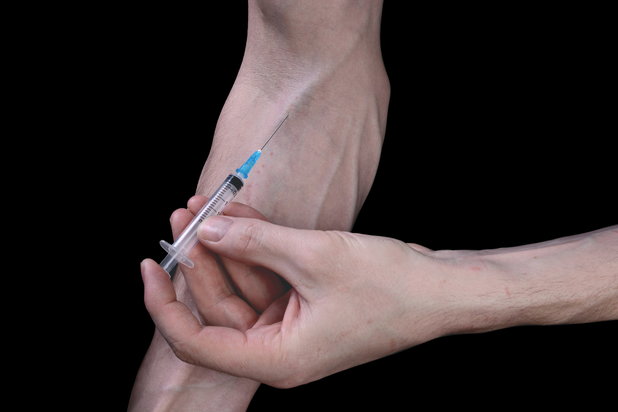What if I told you there was a cure for one of the most addictive substances in the world?
Would you believe it?
I was skeptical, too, until I was introduced to Professor and Scientist at The Scripps Research Institute in La Jolla, California, Kim Janda.
Professor Janda has been experimenting with drug-blocking vaccines for over 10 years and has recently made an exciting discovery—a chemical composition which can prevent opioid overdoses. When tested in mice, the vaccine successfully blocked brain receptors from receiving the effects of opioids present in the rodents’ bloodstreams. What’s more, the experiments revealed the vaccine had in no way altered the rodents’ brain chemistry.
So, What Does This Mean For Humans?
Janda says the opioid vaccines prove to be completely safe for people. The vaccine is designed to be injected into the body like a shot. In the same way a flu shot generates antibodies to defend the body from sickness, the vaccine produces antibodies that attack the drug. Once the antibodies are present, they absorb the drug and prevent it from reaching the brain—no matter the amount of the drug taken.
The results of this vaccine are good news for those trying to recover from prescription pills and even heroin. While this is a plus for the power of the vaccine against strong strains and high amounts of opioids present in the bloodstream, skeptics are concerned in the dangers it presents to addicts who will take other drugs to go around the vaccine’s barrier.
Janda acknowledges this risk, but points out the vaccine is intended only for addicts who want to be clean. The vaccine was created to be used in conjunction with therapy during moments an addict may be craving their opioid of choice.
I Know What You’re Thinking…
If something like this exists, why isn’t it available to the public?
Unfortunately, the answer is simple—Janda has no money to support the vaccine.
One of the last things you'd expect to hear a scientific genius and modern day hero admit to is looking for coins under sofas. Fortunately for us, Janda isn't shy about his research team's financial needs and openly shares his reasons for penny hunting with anyone who will listen. Janda's only hopes of this vaccine going mainstream is by raising money from private investors and from regular people who understand the vaccine's capability of changing the world.
And Why Won't Federal Grants Cover the Vaccine?
Janda says he has already used all of the grants provided for him and big companies don't feel comfortable with the aforementioned risk of the vaccine to be overridden by addicts. A remaining obstacle, Janda says, is the public's mindset that addiction is a choice, not a disease. This perception fuels opposition to funding his cause.
Janda's response, "We have to treat addiction like a brain disease instead of a moral failure."
If progressed to clinical trials, this vaccine can be a big first step towards reforming America's system of drug addiction. Admittedly, it would be a step towards treating the problem of addiction instead of punishing them like criminals. Another possible motive for the government to turn the other way from this vaccine—it would take millions of dollars away from emergency hospital visits each year. As an intravenous substance, the vaccine would replace the need for addicts to go to the hospital in cases of overdosing and would be a drastic step towards successful recovery programs. Ultimately, successful recoveries would result in the health care industry losing profits while saving tax payers tons.
The vaccine would cost over 25 million dollars to bring to human clinical trials and would be the first step towards getting it on the market. While lack of funding presents its challenges, it’s not stopping Janda, who these days, is doing whatever it takes to get money, including scrounging under sofa cushions.
|
If you or someone you know is seeking help from addiction, please visit our directory of treatment centers or call 800-772-8219 to speak to a treatment specialist. |








